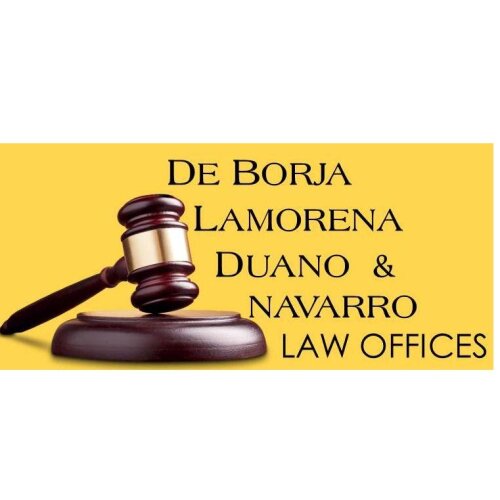Best ADR Mediation & Arbitration Lawyers in Manila
Share your needs with us, get contacted by law firms.
Free. Takes 2 min.
List of the best lawyers in Manila, Philippines
About ADR Mediation & Arbitration Law in Manila, Philippines
Alternative Dispute Resolution (ADR) including mediation and arbitration is a well-established law in the Philippines and is practiced in Manila. It is designed to provide alternatives to traditional court litigations. Mediation involves a neutral third party who aids the disputing parties in reaching a mutually agreeable solution, while arbitration involves an arbitrator making a decision for the disputing parties after hearing their cases. The end goal is to resolve disputes in a more efficient and less confrontational manner.
Why You May Need a Lawyer
In cases involving complex legal issues, or high-value disputes, you might need legal representation during arbitration or mediation. Also, when drafting and enforcing an arbitration agreement or clause, the involved parties would greatly benefit from the assistance of a lawyer. Even if ADR mechanisms aim to reduce hostility, having an experienced lawyer present can be highly beneficial in understanding the legal implications and ensuring your interests are best represented.
Local Laws Overview
The Republic Act 9285 or the "Alternative Dispute Resolution Act of 2004", governs the use of ADR in the Philippines. Under this Act, parties are allowed to consider arbitration or mediation for matters that can be settled or negotiated amicably. Commercial disputes, labor disputes, intellectual property disputes, construction disputes, and most forms of civil disputes can be referred to ADR. However, certain categories such as criminal offenses and family law issues may not be subject to ADR.
Frequently Asked Questions
What is the difference between mediation and arbitration?
In mediation, a neutral third party helps the disputing parties to come to a mutually agreeable resolution but doesn't make a decision for them. In arbitration, the neutral third party (arbitrator) hears the disagreement and makes a decision that the parties agreed beforehand to accept.
Who can act as a mediator or arbitrator?
Under the law, mediators and arbitrators can be any person trusted by the disputing parties. They are usually experienced lawyers, retired judges, or industry experts with specific knowledge relevant to the dispute.
Are arbitration decisions binding?
Yes, decisions rendered by an arbitrator are binding and have the same effect as a court judgment provided the procedure has adhered to the regulations.
Can I appeal an arbitration decision?
Generally, under Philippine law, arbitration decisions are final and binding, with limited grounds for appeal. Such grounds may include procedural irregularities or if the decision is marred by fraud, among others.
Is ADR cheaper than going to court?
Generally, ADR mechanisms like mediation and arbitration are considered more cost-effective and faster than taking a dispute to court. However, the actual cost can vary and would depend on factors such as complexity of the case, and fees of the mediator or arbitrator.
Additional Resources
The office of the Philippine Dispute Resolution Center Inc. (PDRCI), Philippine Mediation Center, and the Integrated Bar of the Philippines offer a wealth of information and resources related to ADR, mediation and arbitration. They provide various workshops, seminars, and consultations to better understand this field of law.
Next Steps
If you consider seeking ADR, mediation, or arbitration, begin by consulting with a local lawyer experienced in this field to understand the benefits, risks, and procedure. Have your lawyer draft the necessary agreements and aid in selecting a mediator or arbitrator. Preparation is key to help facilitate a smoother and more efficient ADR procedure.
Lawzana helps you find the best lawyers and law firms in Manila through a curated and pre-screened list of qualified legal professionals. Our platform offers rankings and detailed profiles of attorneys and law firms, allowing you to compare based on practice areas, including ADR Mediation & Arbitration , experience, and client feedback.
Each profile includes a description of the firm's areas of practice, client reviews, team members and partners, year of establishment, spoken languages, office locations, contact information, social media presence, and any published articles or resources. Most firms on our platform speak English and are experienced in both local and international legal matters.
Get a quote from top-rated law firms in Manila, Philippines — quickly, securely, and without unnecessary hassle.
Disclaimer:
The information provided on this page is for general informational purposes only and does not constitute legal advice. While we strive to ensure the accuracy and relevance of the content, legal information may change over time, and interpretations of the law can vary. You should always consult with a qualified legal professional for advice specific to your situation.
We disclaim all liability for actions taken or not taken based on the content of this page. If you believe any information is incorrect or outdated, please contact us, and we will review and update it where appropriate.

















